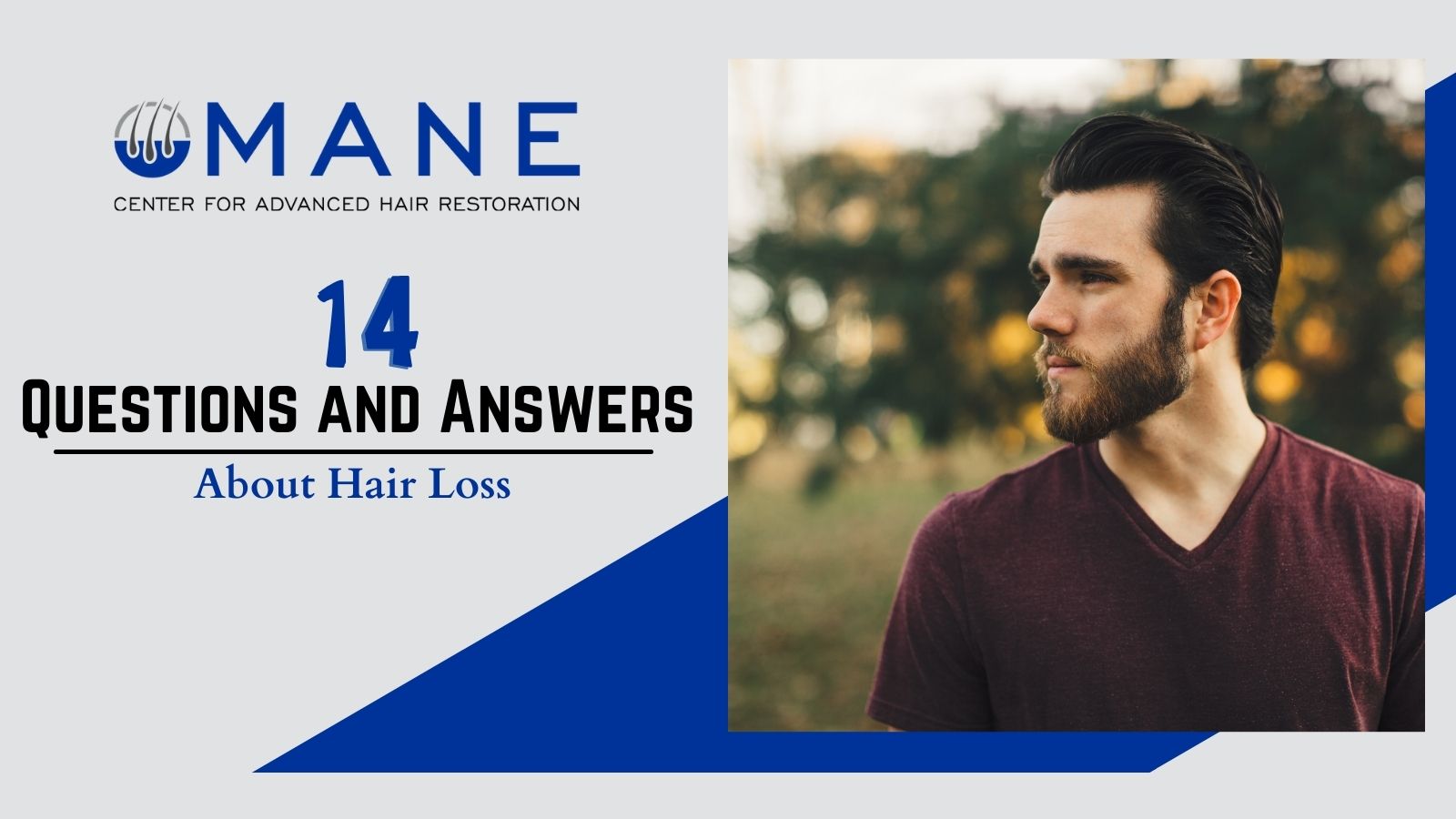Are you wondering what causes hair loss or concerned whether your hair loss is normal? Here are answers to some popular questions you may have about hair loss.
What causes hair loss?
There can be several causes of hair loss. To pinpoint the exact cause, your dermatologist will try to determine whether the hair loss is hereditary or is caused due to other reasons like diet and nutritional deficiencies, medication, stress, thyroid, menopause, etc.
Can hair loss be reversed?
This will entirely depend on the cause and stage of hair loss. For pattern baldness, treatment options like minoxidil and finasteride, PRP therapy, and laser therapy can help slow down the hair loss process and nourish your existing hair.
How to differentiate between normal and excessive hair loss?
Studies suggest that shedding
50 to 100 strands a day is a normal part of the hair growth cycle. If you are shedding more hair than this, it may be a matter of concern.
Can women go bald?
The hair loss pattern of men is different from women. Women are more likely to experience gradual thinning of hair all over the scalp rather than going completely bald.</p.
Does washing hair everyday cause hair loss?
No, washing hair every day does not cause hair loss. The water cannot penetrate the hair root and damage it.
How often should you wash your hair?
This will entirely depend on your hair type and how oily your scalp is. If you have dry hair, washing it twice a week should suffice. If you have greasy hair, you should wash it every day to prevent excess sebum from clogging the scalp pores.
Can hot baths make hair greasy?
Yes! Hot baths, long-term sun exposure, and very hot hair dryers increase sebaceous discharge temperature, liquefying it more and resulting in greasy hair.
Can hair color potentially cause hair loss?
No, because the hair color acts only on the hair shaft and not the root. However, hair dying may weaken the shaft, making the strands prone to split-ends and breakage.
Shampoos that make a lot of foam are good. Is this true?
Nope! The cleansing agents and detergents in the shampoo are responsible for cleaning the hair, not the foaming agents.
Can devices like flat irons and hair dryers make your hair fall out?
Of course! Tools like straighteners, hairdryers, and curling wands use very high heat, eventually resulting in dry, frizzy, and damaged hair prone to breakage.
Can the use of hair accessories, braids, hair extensions, and tight ponytails cause hair fall?
Yes! Prolonged use of tight hairstyles and hair accessories can lead to a condition called traction alopecia – hair loss induced by tight hairstyles.
Can pregnancy cause hair loss?
Not necessarily. While some women might experience some hair loss in some percentage, others might find their hair becoming lustrous and thick during pregnancy.
Can breastfeeding cause hair loss in the postpartum period?
No. Hormonal changes may cause the hair to have a longer growth period during pregnancy, resulting in higher hair loss than normal. However, the situation stabilizes within a year of delivery.
Does wearing a hat or a cap cause hair loss?
No, wearing a hat or a cap does not cause hair loss. However, prolonged wearing of extremely tight caps or hats can cause traction alopecia – gradual hair loss due to your hair being pulled repetitively.
For the finest
hair restoration treatment in Maryland, contact our experts at the Mane Center for Advanced Hair Restoration. We have the most efficient
hair transplant doctors in Chevy Chase, MD, who can guide you accordingly.
Our treatment plans are adapted to suit each patient’s requirements. If you are searching the web for “best
hair transplant near me in Chevy Chase, MD,” then we are one of the most efficient, affordable, and safe options.


